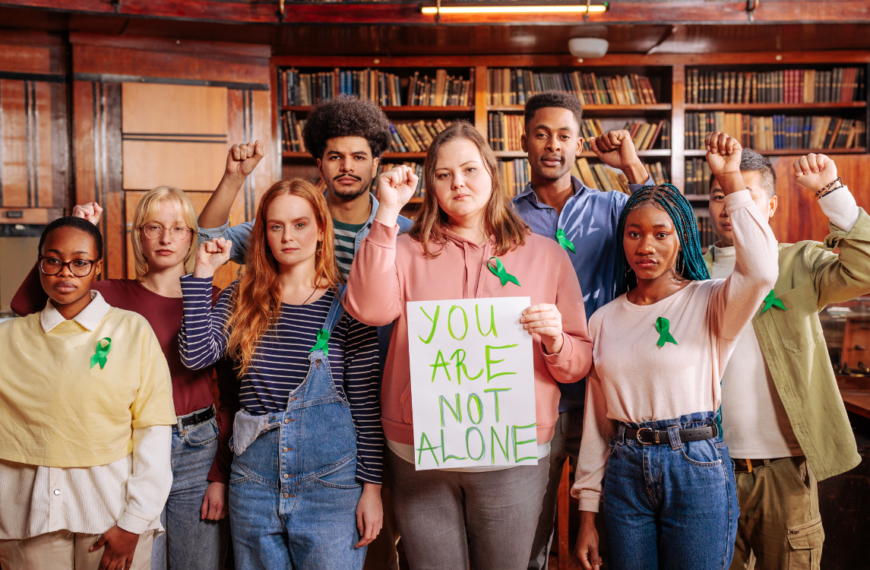In today’s fast-paced world, mental health has become an increasingly important topic, especially among young people. Schools play a crucial role in the lives of students, serving as a foundational environment for learning, social interaction, and personal development. Collaborating with local schools to provide mental health support can have a profound impact on student’s well-being and academic success.
The Importance of Mental Health in Schools
Mental health issues can affect students of all ages and backgrounds, often leading to challenges such as anxiety, depression, and behavioral problems. These issues can significantly hinder academic performance, social relationships, and overall quality of life. By prioritizing mental health in educational settings, schools can create a more supportive environment that fosters both academic and emotional growth.
Building Partnerships
Collaboration between mental health professionals and local schools is essential for establishing a comprehensive support system. This partnership can take many forms, including the integration of mental health services within the school, offering training for educators, and creating awareness campaigns that promote mental health literacy.
1. Integrating Services:
By embedding mental health professionals within schools, students can access support directly on campus. This integration helps to destigmatize mental health issues and ensures that students receive timely assistance. Professionals can provide counseling, conduct workshops, and facilitate group sessions, making mental health care more accessible.
2. Training Educators:
Teachers and staff are often the first to notice signs of mental health struggles in students. Providing training and resources equips them to identify these signs early and respond appropriately. Workshops can cover topics such as recognizing mental health symptoms, implementing coping strategies in the classroom, and understanding when to refer students for further help.
Creating Awareness and Reducing Stigma
One of the biggest barriers to mental health care is the stigma that often surrounds it. Collaborating with schools to promote mental health awareness can significantly reduce this stigma. Awareness campaigns, workshops, and events can educate students, parents, and staff about the importance of mental health and the resources available to them.
1. Organizing Events:
Hosting mental health awareness days or weeks can engage the entire school community. Activities might include guest speakers, informational booths, and interactive workshops. These events create an open dialogue about mental health, encouraging students to seek help and support one another.
2. Peer Support Programs:
Implementing peer support programs empowers students to take an active role in promoting mental health within their schools. Trained peer leaders can provide support, organize events, and serve as a bridge between students and mental health resources. This initiative fosters a sense of community and encourages open discussions about mental health.
Fostering Resilience and Coping Skills
Collaborating with schools also allows for the incorporation of resilience-building programs into the curriculum. Teaching students effective coping strategies, stress management techniques, and emotional regulation skills equips them to navigate the challenges they may face.
1. Curriculum Integration:
Integrating mental health education into existing subjects can normalize discussions around mental well-being. Lessons can cover topics such as emotional intelligence, mindfulness, and conflict resolution, helping students develop a well-rounded approach to their mental health.
2. After-School Programs:
Offering after-school activities focused on mental health can further enhance students’ resilience. Programs like art therapy, yoga, and mindfulness can provide students with creative outlets and relaxation techniques, fostering emotional well-being in a supportive environment.
The Role of Families and Community
Engaging families in the conversation around mental health is vital for creating a holistic support system. Schools can host informational sessions for parents, offering resources and strategies to support their children’s mental health at home.
1. Family Workshops:
Workshops can provide families with tools to recognize signs of mental health struggles and strategies for open communication. Empowering parents to participate in their child’s mental health journey strengthens the overall support network.
2. Community Resources:
Schools can collaborate with local mental health organizations to provide families with information on available resources and services. By creating a network of support that includes both school and community resources, families can feel more equipped to address mental health needs.
Conclusion
Collaborating with local schools to provide mental health support is an essential step toward fostering a healthier, more supportive environment for students. By integrating services, training educators, creating awareness, and involving families, communities can empower young people to prioritize their mental health. Ultimately, this collaboration not only supports individual students but also enhances the overall well-being of the community, paving the way for a brighter future for all. Together, we can create an educational landscape where mental health is valued, understood, and actively supported.

















